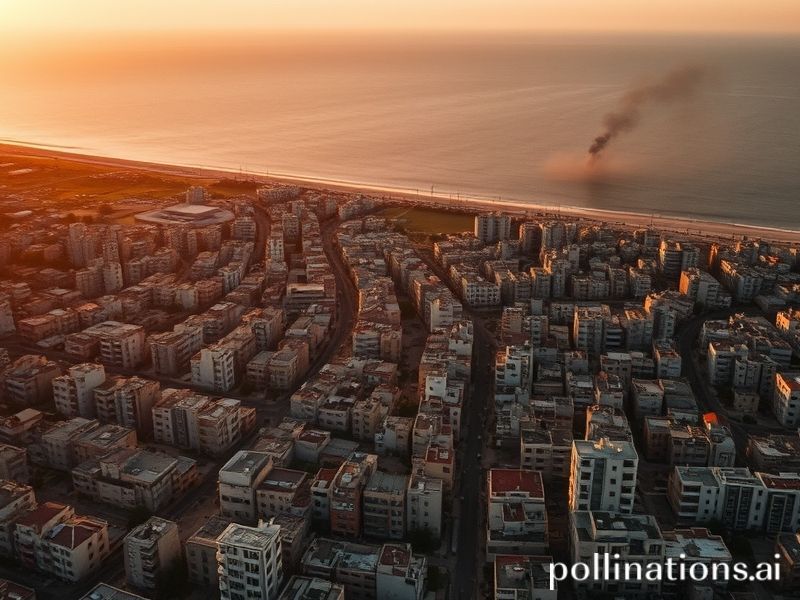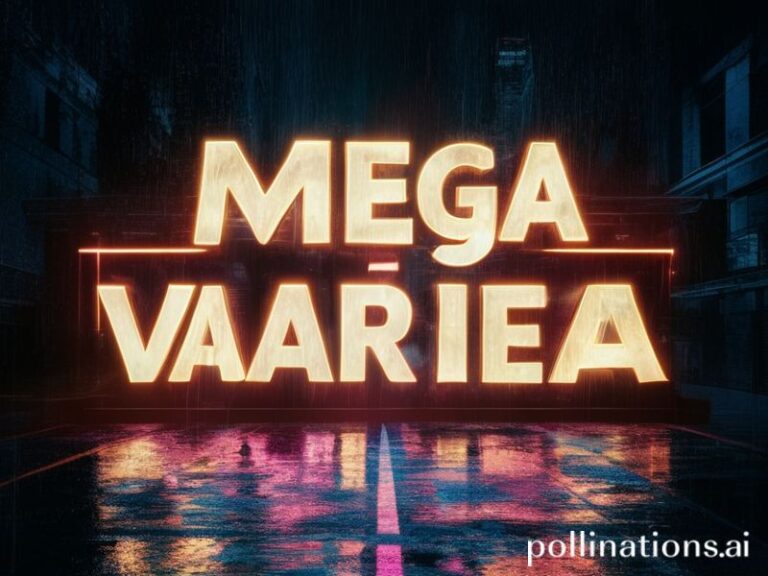Gaza Strip: The World’s Most Geopolitically Useful Tragedy Explained (With a Side of Dark Humor)
Gaza Strip: 140 Square Kilometres of Perpetual Headlines
By the time you finish reading this sentence, some foreign minister somewhere will have issued a “deeply concerned” press release about Gaza. That is the Strip’s greatest export: statements of concern, delivered in impeccable officialese, then promptly filed next to the coffee-stained draft on climate change and the USB stick marked “Ukraine talking points.” The 2.3 million people crammed between the Mediterranean and a concrete wall have become the world’s most geopolitically useful tragedy—always available for a quick moral posture, never quite pressing enough to interrupt the quarterly earnings call.
Geography is supposed to be destiny, but Gaza has turned the proverb on its head: its destiny is to remain geographically inconvenient. The place is roughly the size of Detroit, only with fewer functioning fire departments and more regional powers convinced they can micromanage it from Jerusalem, Cairo, Doha, or Washington. Each patron arrives armed with a PowerPoint deck titled “Sustainable Ceasefire” and exits muttering about “complex regional dynamics,” a diplomatic euphemism for “our voters prefer the conflict just simmering, thanks.”
Global supply chains, those omniscient beasts that can source cobalt from Congolese child miners and avocados from Mexican cartels, mysteriously seize up at the Erez Crossing. The Strip’s most reliable import is therefore schadenfreude: foreign activists live-tweet the blockade from cafés with better Wi-Fi than the hospitals they’re trying to save; defense contractors clock overtime translating “precision strike” into seven languages for the evening news. Everyone agrees the status quo is unsustainable, which is why it has sustained itself since most TikTok users were in diapers.
And yet, the Strip continues to punch above its weight in the attention economy. When Gaza flares, oil futures twitch, European parliaments schedule emergency sessions, and cable anchors practice their somber eyebrows. The enclave is a geopolitical QR code: scan it and you land on whatever ideological landing page your algorithm pre-selected. One side sees a Warsaw Ghetto rerun; the other, a forward operating base for the axis of resistance. The locals, inconveniently, insist on being neither extras nor avatars, which only confuses the story arc.
The broader significance? Gaza is the world’s screen saver: the image that pops up when nothing else is moving, reminding us that our international order runs on managed stalemates. The United Nations can keep a peacekeeping force in Cyprus for half a century over a dispute no one tweets about, but Gaza must reboot its trauma every few fiscal quarters so that donor conferences feel urgent. It is the place where the Responsibility to Protect meets the Responsibility to Look Busy.
Meanwhile, the Mediterranean creeps inland—climate change has that tactless habit of ignoring borders—threatening to turn the Strip into a salt-water aquarium with human exhibits. One can almost hear future historians: “Ah yes, the 2020s, when the world argued over whose Iron Dome patent was more ethical while the land itself liquefied. Classic.”
So what happens next? The smart money is on another ceasefire named after whichever Egyptian city has spare hotel rooms for negotiators. Commodities markets will exhale, influencers will pivot back to crypto, and a few enterprising start-ups will market “post-conflict yoga retreats” on the half-collapsed beachfront. Somewhere in Brussels, a think-tank fellow will update his slide deck: “Gaza: Still Complicated™.”
And in the Strip itself, the lights—what’s left of them—will flicker on and off, powered by generators funded by the same governments that block the fuel. Because if there is one iron law of the twenty-first century, it is this: we are all sophisticated enough to finance both the problem and the humanitarian appeal, yet far too civilised to solve either.
Call it symmetry, call it farce, just don’t call it unexpected. After all, nothing about Gaza is new—except, perhaps, our growing talent for horror that fits in a push notification.







